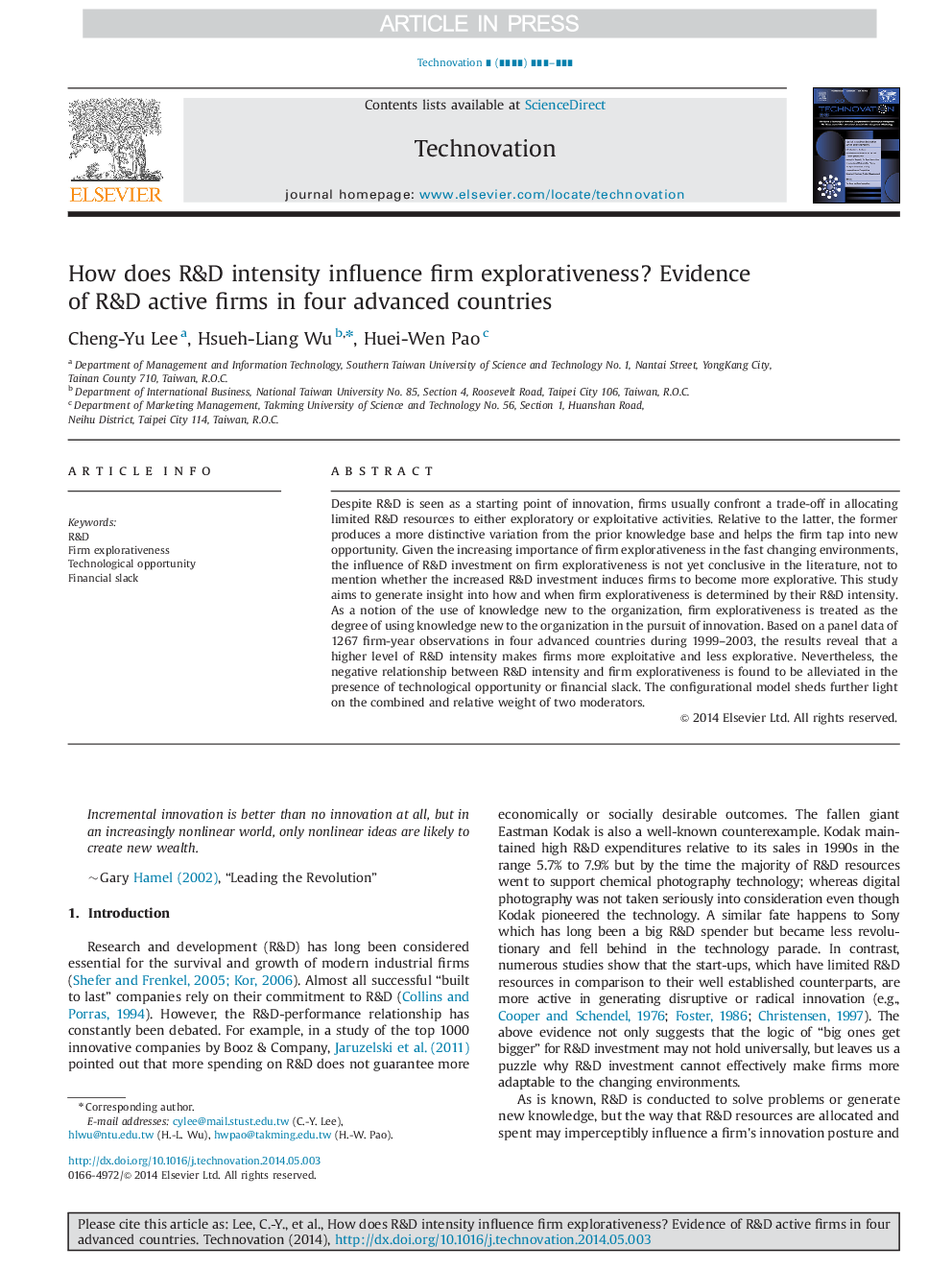| Article ID | Journal | Published Year | Pages | File Type |
|---|---|---|---|---|
| 10494884 | Technovation | 2014 | 12 Pages |
Abstract
Despite R&D is seen as a starting point of innovation, firms usually confront a trade-off in allocating limited R&D resources to either exploratory or exploitative activities. Relative to the latter, the former produces a more distinctive variation from the prior knowledge base and helps the firm tap into new opportunity. Given the increasing importance of firm explorativeness in the fast changing environments, the influence of R&D investment on firm explorativeness is not yet conclusive in the literature, not to mention whether the increased R&D investment induces firms to become more explorative. This study aims to generate insight into how and when firm explorativeness is determined by their R&D intensity. As a notion of the use of knowledge new to the organization, firm explorativeness is treated as the degree of using knowledge new to the organization in the pursuit of innovation. Based on a panel data of 1267 firm-year observations in four advanced countries during 1999-2003, the results reveal that a higher level of R&D intensity makes firms more exploitative and less explorative. Nevertheless, the negative relationship between R&D intensity and firm explorativeness is found to be alleviated in the presence of technological opportunity or financial slack. The configurational model sheds further light on the combined and relative weight of two moderators.
Related Topics
Social Sciences and Humanities
Business, Management and Accounting
Business and International Management
Authors
Cheng-Yu Lee, Hsueh-Liang Wu, Huei-Wen Pao,
